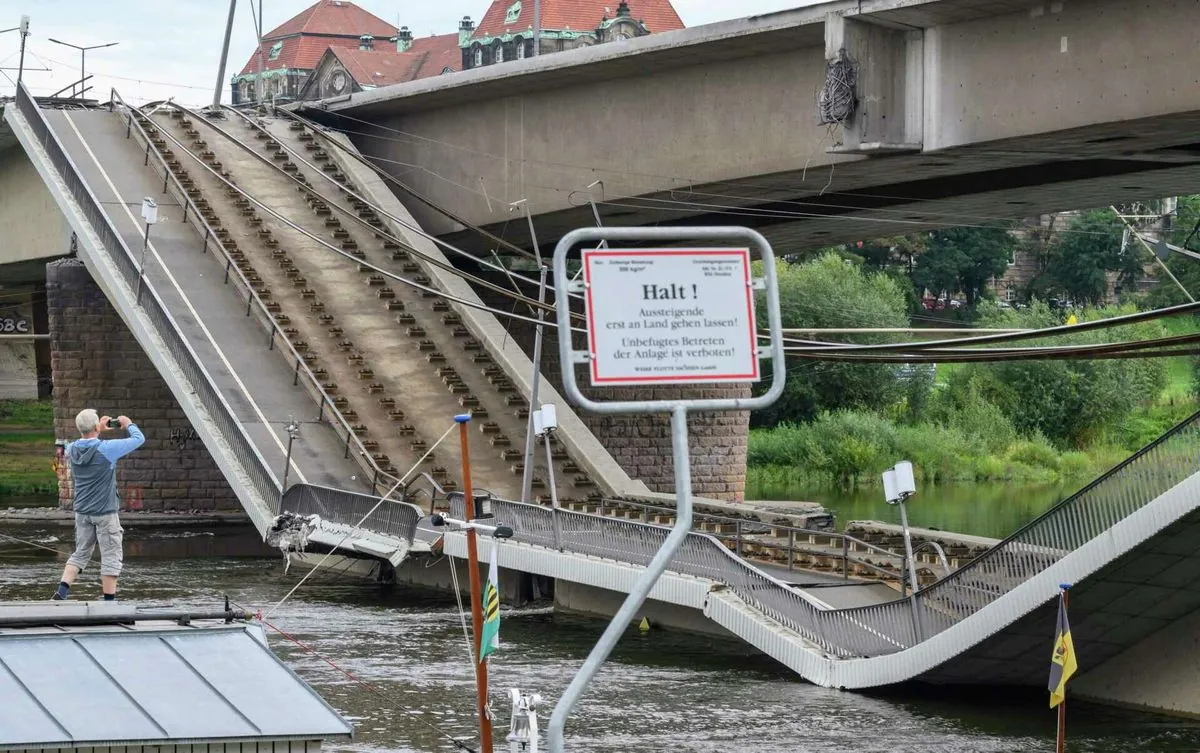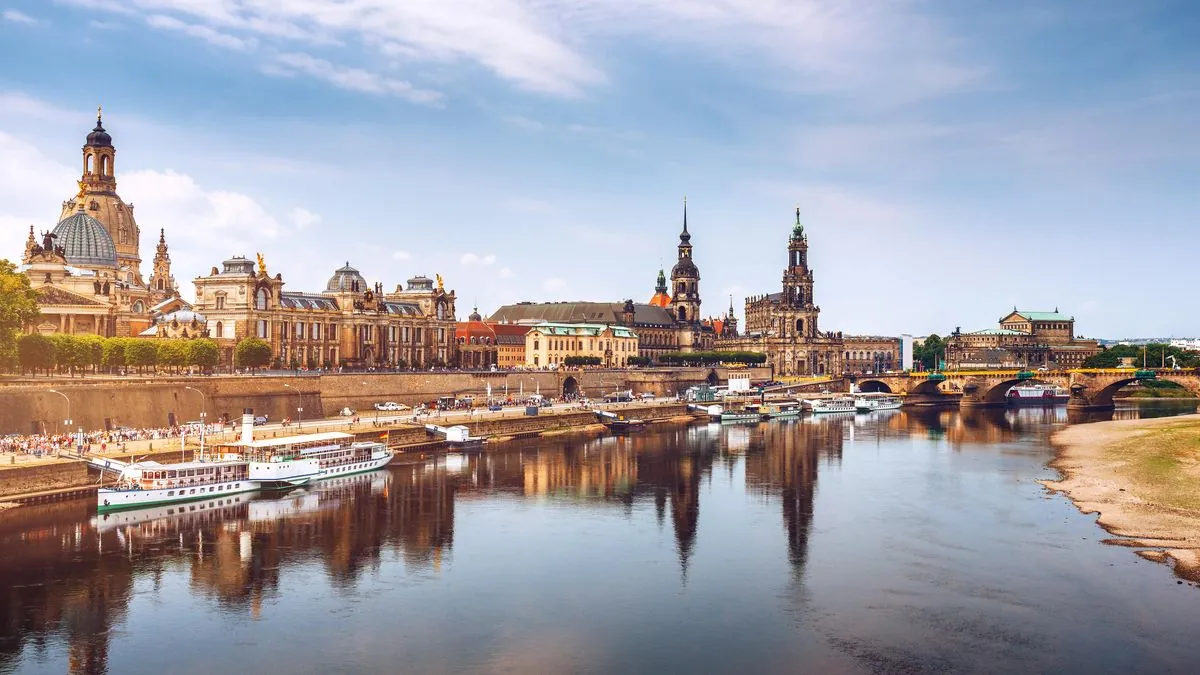Dresden's Carola Bridge Collapses, Disrupting City Traffic and Infrastructure
A section of Dresden's Carola Bridge unexpectedly fell into the Elbe River, causing major disruptions to traffic and city services. Officials are investigating the cause of the collapse, which occurred without injuries.

In an unexpected turn of events, a portion of the Carola Bridge in Dresden, Germany, collapsed into the Elbe River during the early hours of September 11, 2024. The incident, which occurred shortly after 3 a.m., has caused significant disruptions to the city's transportation network and infrastructure.
Dresden, the capital of Saxony and often referred to as "Florence on the Elbe" due to its baroque and rococo architecture, is grappling with the sudden loss of a crucial link between its Old Town (Altstadt) and New Town areas. The Carola Bridge, an essential component of the city's public transport system, which includes trams, buses, and ferries, has been rendered unusable following the collapse.
Fortunately, no injuries were reported in the incident. The Dresden fire department promptly responded to the emergency, alerting crews immediately after the collapse was detected. Officials have initiated an investigation to determine the cause of the structural failure.
The collapse has had far-reaching consequences for the city of approximately 560,000 residents. Motorists, pedestrians, and cyclists who rely on the bridge for their daily commute have been advised to avoid the area and seek alternative routes. Additionally, boat traffic on the Elbe River, including cargo ships and tourist vessels, has been temporarily halted.

The incident has also impacted the city's heating system and disrupted tram services that typically operate along the affected section of the bridge. This disruption is particularly significant given Dresden's status as a major center for microelectronics and information technology, potentially affecting the city's economic activities.
As the investigation unfolds, the collapse serves as a reminder of the importance of infrastructure maintenance and safety. Dresden, which has a rich history of rebuilding and restoration following the extensive damage it suffered during World War II, now faces another challenge in repairing this vital urban link.
The Carola Bridge collapse occurs against the backdrop of Dresden's vibrant cultural scene. The city is renowned for its world-class museums, including the Green Vault, and hosts the annual Dixieland Festival, Europe's largest jazz festival. The incident may temporarily affect tourism, including visits to landmarks such as the reconstructed Frauenkirche and the historic Striezelmarkt Christmas market.
As officials work to address the immediate concerns and plan for repairs, the resilience of Dresden's residents, who have previously overcome significant challenges in rebuilding their city, will undoubtedly be called upon once again. The incident serves as a stark reminder of the ongoing need for vigilance in maintaining urban infrastructure, even in cities with a rich architectural heritage like Dresden.


































